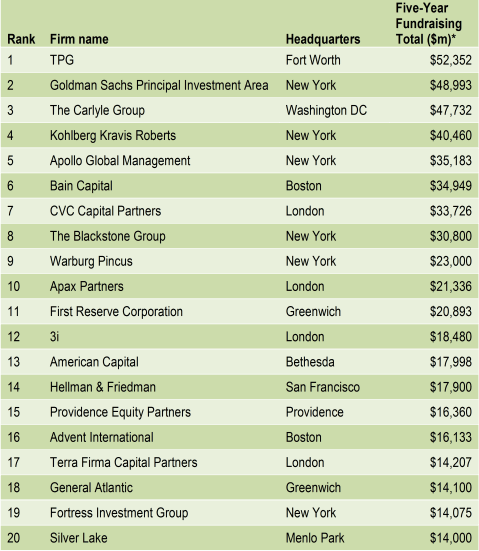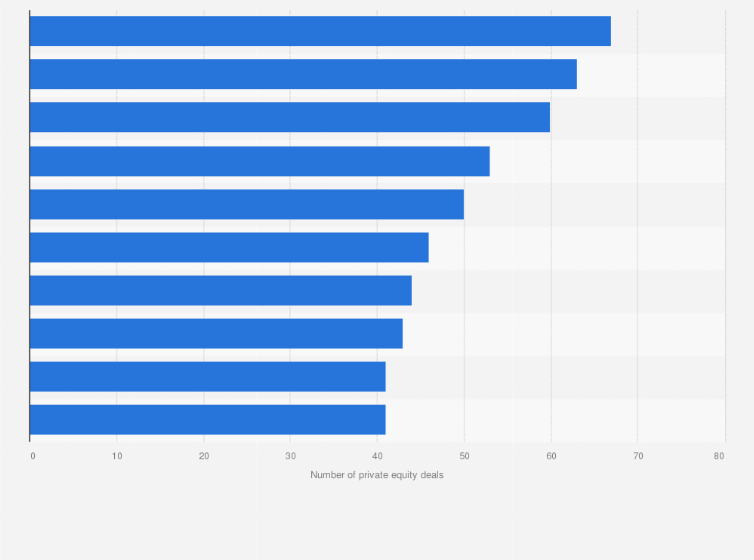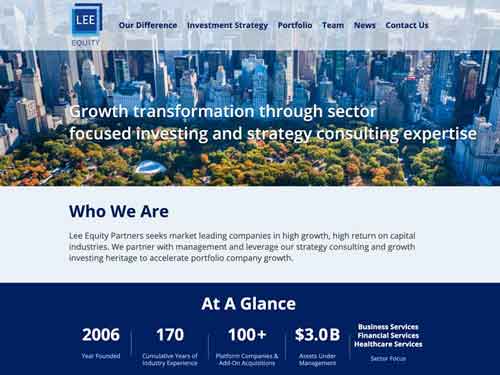Entering private equity straight after an MBA is nearly difficult unless you have actually done financial investment banking or private equity before the MBA. You might finish the MBA, utilize it to win a full-time investment banking task, and then recruit for private equity roles, however that’s far more hard than breaking in pre-MBA from financial investment banking.
Leading qualifications (grades, test ratings, and university reputation); A great deal of and interview preparation; Something that makes you appear to be a human rather than a robotic; The ability to about business and financial investments rather than simply “selling” them. A strong with the firm PE companies are much smaller sized than banks, so “in shape” and soft abilities are a lot more essential.
Like financial investment banks, Private Equity companies normally have a fairly stiff seniority structure with huge differences in experience level and obligations from leading to bottom. In general the senior-most specialists are accountable for deal sourcing, relationship management, and financial investment decision making, while the junior-most professionals bring the impact of the analytical workload.
This is, a minimum of in part, due to the fact that Private Equity companies tend to be much smaller sized than financial investment banking departments at significant banks. As an outcome, junior professionals will tend to have far more interaction with senior professionals, cultivating far more chance to work straight with and discover straight from the most seasoned experts in the firm.
The associate deals with most of the monetary modeling and initial due diligence for financial investment chances, while helping with the management and tracking of portfolio companies in addition to sourcing deals and supporting transactions. More everyday details on the partner’s role are provided later on in this guide. A majority of Pre-MBA partners (specifically in the US) are hired for a two-year to three-year program. (Such a change would be sped up if the United States and other federal governments followed the lead of European nations in leveling the tax playing field.) Public companies might then benefit from the chances managed by a buy-to-sell method. Investors would benefit, too, as the higher competition in this space would produce a more efficient marketone in which private equity partners were no longer so highly preferred over the investors in their funds.

You’ve most likely become aware of the term private equity (PE). Roughly $3.9 trillion in possessions were held by private equity companies since 2019, and that was up 12.2 percent from the year before. Investors look for private equity funds to earn returns that are better than what can achieved in public equity markets. https://www.youtube.com/embed/ZfFi8a5vpLE
Continue reading to learn more about private equity including how it develops value and some of its essential methods. Private equity refers to capital financial investment made into business that are not openly traded. Many private equity companies are open to certified investors or those who are considered high-net-worth, and effective private equity supervisors can earn millions of dollars a year.
Private Equity Firms’ Incestuous New Strategy
Private equity is ownership or interest in an entity that is not publicly noted or traded. A source of investment capital, private equity originates from high-net-worth people and firms that buy stakes in private business or obtain control of public companies with strategies to take them private, eventually delisting them from stock market (grant carter obtained).


Because private equity involves direct investmentoften to get influence or control over a business’s operationsa significant capital expense is required, which is why funds with deep pockets dominate the industry. The minimum quantity of capital required for certified investors can vary depending upon the firm and fund. Some funds have a $250,000 minimum entry requirement, while others can require millions more.
Partners at private-equity companies raise funds and handle these cash to yield beneficial returns for investors, generally with an investment horizon of in between 4 and seven years. The private equity business draws in the very best and brightest in business America, including leading entertainers from Fortune 500 business and elite management consulting firms.
The charge structure for private-equity firms differs but generally includes a management and performance charge. An annual management charge of 2% of assets and 20% of gross revenues upon sale of the company prevails, though incentive structures can vary considerably (manager partner indicted). Considered that a private-equity firm with $1 billion of properties under management (AUM) might have no more than 2 dozen investment professionals, which 20% of gross profits can produce tens of millions of dollars in costs, it is simple to see why the market draws in leading skill.

Principals, on the other hand, can earn more than $1 million in (realized and latent) compensation annually. Private-equity firms have a variety of investment choices. Some are stringent financiers or passive investors wholly depending on management to grow the business and generate returns. Due to the fact that sellers usually see this as a commoditized method, other private-equity companies consider themselves active investors.
Active private equity firms may have a comprehensive contact list and C-level relationships, such as CEOs and CFOs within an offered market, which can help increase earnings. They might likewise be experts in realizing operational effectiveness and synergies. If a financier can generate something special to a deal that will boost the business’s worth gradually, they are more likely to be seen positively by sellers.
It is not a surprise that the largest investment-banking entities such as Goldman Sachs (GS), JPMorgan Chase (JPM) and Citigroup (C) often facilitate the biggest offers – tysdal business partner. When it comes to private-equity companies, the funds they use are just available to certified investors and might only allow a limited number of investors, while the fund’s founders will typically take a rather large stake in the firm also.
Private Equity And M&a Deal Activity Post-covid
For circumstances, the Blackstone Group (BX) trades on the New York Stock Exchange (NYSE) and has actually been included in the buyouts of business such as Hilton Hotels and MagicLab. Private-equity firms perform 2 critical functions: deal origination/ transaction executionportfolio oversight Deal origination includes developing, keeping and developing relationships with mergers and acquisitions (M&A) intermediaries, investment banks, and similar deal professionals to protect both high-quantity and premium offer flow.
Some companies hire internal staff to proactively determine and reach out to company owners to create transaction leads. fraud theft tens. In a competitive M&A landscape, sourcing proprietary offers can assist make sure that funds raised are effectively released and invested. In addition, internal sourcing efforts can reduce transaction-related costs by eliminating the financial investment banking middleman’s charges.
As such, offer origination experts attempt to develop a strong rapport with transaction professionals to get an early intro to a deal. It is necessary to note that financial investment banks often raise their own funds, and therefore might not only be a deal referral, but also a competing bidder. Simply put, some investment banks take on private-equity companies in buying up excellent companies.


Particular funds can have their own timelines, financial investment goals, and management approaches that separate them from other funds held within the very same, overarching management firm. Successful private equity firms will raise lots of funds over their life time, and as firms grow in size and complexity, their funds can grow in frequency, scale and even specificity. To find out more about real estate investing and also - check out his blogs and -.
In 15 years of managing assets and backing several business owners and financiers,Tysdal’s companies co-managed or handled , non-discretionary, around $1.7 billion in assets for ultra-wealthy families in markets such as gas, oil and healthcare , real estate, sports and home entertainment, specialty loaning, spirits, technology, durable goods, water, and services business. His team suggested clients to purchase nearly 100 entrepreneurial companies, funds, personal loaning deals, and real estate. Ty’s performance history with the personal equity capital he released under the very first billionaire client was over 100% annual returns. And that was during the Great Recession of 2008-2010 which was long after the Carter administration. He has produced numerous millions in wealth for customers. Nevertheless, given his lessons from working with a handful of the certified, extremely advanced individuals who could not seem to be pleased on the advantage or understand the prospective disadvantage of a deal, he is back to work solely with business owners to help them offer their companies.
After the financial investment committee indications off to pursue a target acquisition prospect, the deal experts send a deal to the seller. If both parties choose to move forward, the deal specialists deal with different transaction consultants to include financial investment bankers, accountants, attorneys and specialists to carry out the due diligence phase.
This part of the procedure is crucial, as experts can discover deal-killers, such as substantial and previously undisclosed liabilities and threats. There are lots of private equity investment techniques – million investors state. 2 of the most common are leveraged buyouts and endeavor capital investments. Leveraged buyouts are exactly how they sound. A target firm is purchased out by a private equity firm.
The acquirer (the PE firm) seeks to buy the target with funds gotten through making use of the target as a sort of security. In a leveraged buyout, getting PE companies are able to purchase companies with just having to set up a fraction of the purchase rate. loans athletes sports. By leveraging the financial investment, PE firms intend to optimize their possible return.
PE companies will frequently see that potential exists in the market and more notably the target firm itself, and frequently due to the lack of revenues, cash circulation and debt funding available to the target. securities fraud racketeering. Companies have the ability to take significant stakes in such companies in the hopes that the target will evolve into a powerhouse in its growing market.
The Private Equity Business Buyer
Oversight and management make up the second crucial function of PE experts. To name a few assistance work, they can walk a young company’s executive staff through finest practices in strategic planning and financial management. In addition, they can assist institutionalise new accounting, procurement, and IT systems to increase the worth of their investment.